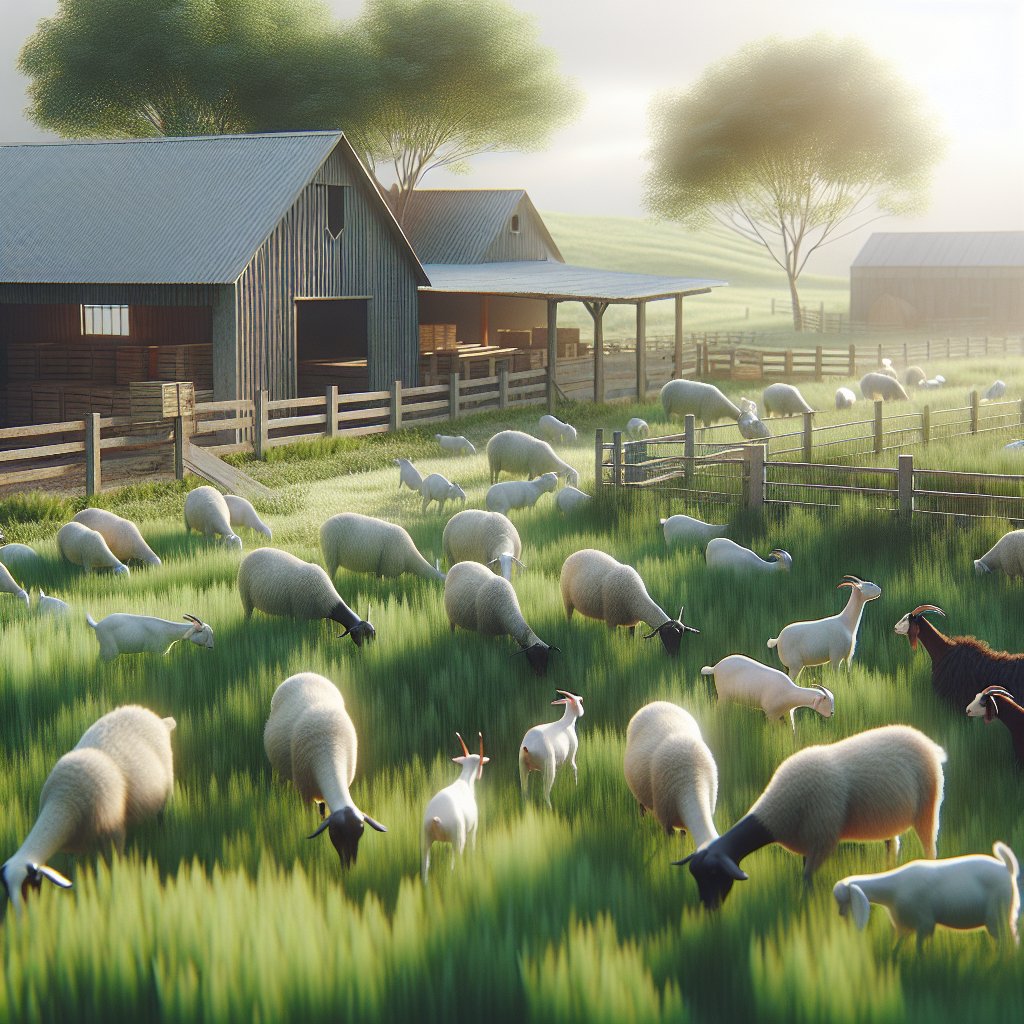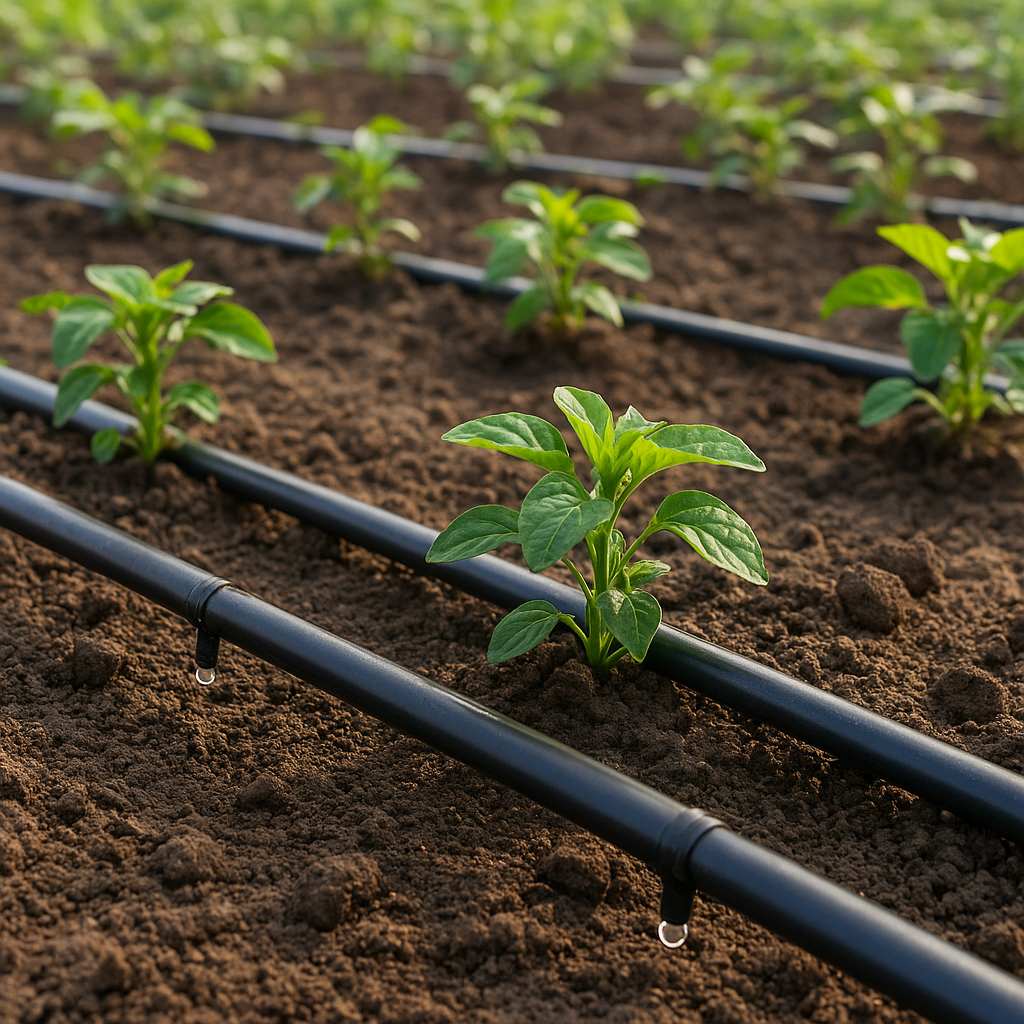Starting a small-scale sheep or goat farm can be a rewarding venture, offering both economic benefits and a sustainable lifestyle. With the growing interest in local food production and sustainable farming practices, raising sheep or goats has become an attractive option for many aspiring farmers. This article will guide you through the essential steps to establish your own small-scale sheep or goat farm, covering everything from choosing the right breed to managing your farm effectively.
Choosing the Right Breed
The first step in starting a small-scale sheep or goat farm is selecting the right breed that suits your goals and environment. Different breeds have unique characteristics, and understanding these can help you make an informed decision.
Sheep Breeds
When it comes to sheep farming, there are several breeds to consider, each with its own advantages:
- Merino: Known for their fine wool, Merinos are ideal for wool production. They are hardy and can adapt to various climates.
- Suffolk: This breed is popular for meat production. Suffolk sheep are known for their rapid growth and high-quality carcass.
- Dorset: Dorsets are versatile and can be raised for both meat and wool. They are also known for their ability to breed out of season.
- East Friesian: If your focus is on milk production, East Friesians are one of the best dairy sheep breeds, known for their high milk yield.
Goat Breeds
Similarly, goats come in various breeds, each suited for different purposes:
- Nubian: Nubians are known for their rich milk, which is high in butterfat. They are friendly and adaptable, making them great for small farms.
- Saanen: This breed is one of the largest dairy goats and is known for its high milk production. Saanens are calm and easy to handle.
- Boer: If meat production is your goal, Boer goats are an excellent choice. They are known for their rapid growth and high-quality meat.
- Pygmy: Pygmy goats are small and friendly, making them ideal for hobby farms or as pets. They are also good for brush control.
Consider your farming goals, available space, and climate when choosing the right breed. Researching local markets can also help you determine which breeds are in demand.
Setting Up Your Farm
Once you have chosen the right breed, the next step is to set up your farm. This involves planning your land, facilities, and resources to ensure a successful operation.
Land Requirements
The amount of land you need will depend on the number of animals you plan to raise. A general guideline is to provide at least 1 acre of pasture for every 5 to 10 sheep or goats. This allows them enough space to graze and roam, which is essential for their health and well-being.
Fencing and Shelter
Proper fencing is crucial for keeping your sheep or goats safe from predators and preventing them from wandering off. Here are some fencing options:
- Barbed Wire: Effective for larger pastures but may not be suitable for smaller animals.
- Electric Fencing: A popular choice for small-scale farms, electric fencing is effective and can be easily moved.
- Stock Fencing: This type of fencing is designed specifically for livestock and can be a good long-term solution.
In addition to fencing, you will need to provide shelter for your animals. A simple barn or shed can protect them from harsh weather conditions. Ensure that the shelter is well-ventilated, dry, and spacious enough for your flock or herd.
Water and Feed
Access to clean water is essential for the health of your sheep or goats. You can provide water through troughs or automatic waterers, ensuring they have fresh water available at all times. Additionally, consider the following feeding options:
- Pasture Grazing: Allowing your animals to graze on pasture is the most natural and cost-effective way to feed them.
- Supplemental Feeding: Depending on the quality of your pasture, you may need to provide supplemental feed, such as hay or grain, especially during winter months.
- Minerals and Vitamins: Providing mineral blocks or supplements can help ensure your animals receive the necessary nutrients.
Health and Management
Regular Health Checks
Conducting regular health checks is essential for early detection of any health issues. Look for signs of illness, such as:
- Changes in appetite or behavior
- Weight loss or poor body condition
- Coughing, nasal discharge, or other respiratory issues
Consult with a veterinarian to establish a vaccination schedule and discuss any specific health concerns related to your chosen breed.
Breeding and Reproduction
If you plan to breed your sheep or goats, understanding their reproductive cycles is crucial. Here are some key points to consider:
- Breeding Season: Sheep typically breed in the fall, while goats can breed year-round. Monitor your animals for signs of heat.
- Gestation Period: Sheep have a gestation period of about 5 months, while goats carry their young for approximately 150 days.
- Care for Pregnant Animals: Provide extra nutrition and a safe environment for pregnant animals to ensure healthy offspring.
Record Keeping
Maintaining accurate records is essential for managing your farm effectively. Keep track of:
- Breeding dates and offspring
- Health treatments and vaccinations
- Feeding schedules and expenses
Good record-keeping will help you make informed decisions and improve your farm’s overall efficiency.
Marketing Your Products
Identifying Your Market
Research your local market to identify potential customers. Consider the following:
- Local farmers’ markets
- Restaurants and grocery stores
- Online sales through social media or your own website
Building a Brand
Creating a brand for your farm can help you stand out in the market. Consider the following elements:
- Farm Name: Choose a memorable name that reflects your values and products.
- Logo and Packaging: Invest in professional branding to create a cohesive image for your farm.
- Storytelling: Share your farming journey and values with customers to build a connection.
Engaging with the Community
Building relationships within your community can enhance your marketing efforts. Participate in local events, collaborate with other farmers, and engage with customers through social media to create a loyal customer base.
Conclusion
Starting a small-scale sheep or goat farm requires careful planning, dedication, and a passion for farming. By choosing the right breed, setting up your farm effectively, managing your animals’ health, and marketing your products, you can create a successful and sustainable farming operation. Embrace the journey, and enjoy the rewards that come with raising sheep or goats.




